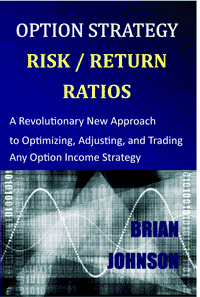After insisting a week ago that they did not need a bailout, Spain asked for $125 billion to shore up its crumbling banking system. World equity markets initially rallied on the news. Spain's IBEX 35 index was up a remarkable 5% at Monday's open, but eventually gave back all of its gains and finished yesterday's trading session in the red. US equities were down sharply on the day.
Why were the equity markets initially up so dramatically? Another loan was not going to solve their fundamental problems. I was an institutional fixed income portfolio manager for many years and there are some very basic rules for bonds. The first rule is that more debt means more risk. When a person, company, country, or any entity already has too much debt, taking on more loans (especially senior to the outstanding debt) increases the probability of default and increases the risk to existing bondholders.
As default risk rises, yields must go up to compensate the bondholders. As yields rise, borrowing costs go up. As borrowing costs go up, budget or cash flow deficits widen. As budget deficits widen, more debt must be issued...
Bond investors understand this. As a result, the yield on 10-year Spanish government bonds increased from 6.22% last week to 6.68% this morning. Yields on Italian debt increased from 5.74% last week to 6.12% today, clearly in the danger zone. An additional $125 billion in debt would increase Spain's debt to GDP ratio significantly and increase the probability of a sovereign default.
Surprisingly, international equity markets were up again overnight, although European markets have since given up their gains and are currently down between 0.1% and 1.9%. Emerging equity markets have historically been considered "risk" markets, rising more and falling faster than domestic large-cap indexes. Not this morning. The emerging equity market ETF (EEM) is currently up over 1.3%, even with European equity markets down and yields rising for both Spain and Italy. Inexplicable.
If you would like to track the status of the European sovereign debt crisis, watch the yields on Spanish and Italian debt. This will give you much better insight into the future prospects for the global equity markets. If and when Spain and Italy can no longer afford to access the credit markets, then the contagion would immediately spread to all global equity markets as well. No country would be immune
Feedback
Your comments, feedback, and questions are always welcome and appreciated. Please use the comment section at the bottom of this page or send me an email.
Do you have any questions about the material? What topics would you like to see in the future?
Referrals
If you found the information on www.TraderEdge.Net helpful, please pass along the link to your friends and colleagues or share the link with your social network.
The "Share / Save" button below contains links to all major social networks. If you do not see your social network listed, use the down-arrow to access the entire list of social networking sites.
Thank you for your support.
Brian Johnson
Copyright 2012 - Trading Insights, LLC - All Rights Reserved.
.













Since writing the initial post this morning, the yield on Spain’s debt has risen to 6.80%, Italy’s yield has spiked to 6.29% AND most equity markets are up significantly for the day.
Who is right? It should be interesting.
Brian Johnson